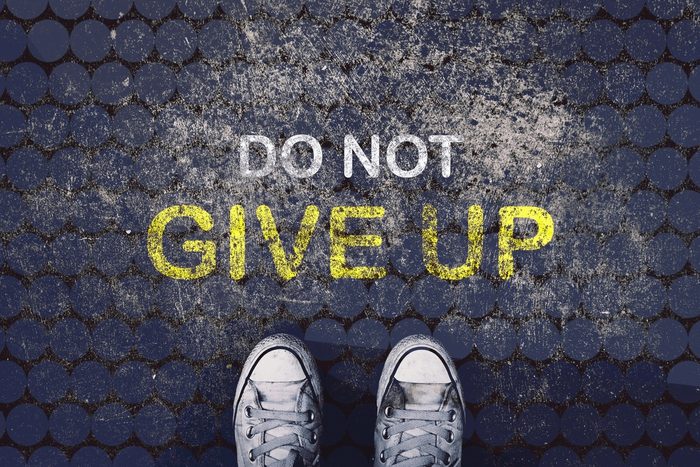How to Stay on Track with Intermittent Fasting?
Written by Andrew Brewer. ⚕️Reviewed and fact checked by our medical team.
Motivation can make or break a diet, and that’s even more true when talking about intermittent fasting. As your stomach growls and you start to feel hangry just a few hours in, it can be tempting to give in and sneak a snack. However, one small concession will lead to a snowball effect, and you’ll be right back at square one before you know it.
Here are six tips to keep you motivated as you are intermittent fasting, helping you stay on track to reach your goals.
Key Takeaways
- Start small and work your way up: Instead of jumping into an aggressive fasting program, it’s better to start small and gradually increase the length of your fasts.
- Stay hydrated and eat strategically: Drinking enough fluids and consuming nutrient-dense foods like nuts, fish, eggs, avocados, beans, and lentils can help keep you feeling full longer and prevent dehydration.
- Listen to your body: Pay attention to what your body tells you and adjust your behaviors and eating patterns accordingly. If you’re feeling faint or dehydrated, it’s important to eat something or drink enough fluids to stay hydrated.
Use an Intermittent Fasting App
Intermittent fasting apps help to keep you accountable. As you track your fasting and the foods you eat, you’ll feel a sense of accomplishment when you reach your goals. In real-time, you can see what works, what doesn’t, and how much weight you’re losing.
Start Small
As you learn the ins and outs of intermittent fasting, start small. Skip a meal, level up to 12:12, then 16:8. Once you get more comfortable, you can level up to the more advanced stages. Don’t start at the most aggressive program because it will be a shock to your system, and you’ll be less likely to complete the intermittent fast.
Don’t Obsess Over Food
As your body gets used to its new eating schedule, it’s easy to focus on how hungry you are. Maybe you’ll start dreaming of the juicy burger you’ll have as soon as your fast is over. Your fantasies may be so vivid you can even taste it. As hard as it may be, resist the urge. Obsessing over food will just make you hungrier. Distract yourself with a good book or by doing a chore you’ve put off.
Stay Hydrated
Fasting doesn’t mean you’re abstaining from drinking, so drink plenty of fluids. This can be water, tea, or other zero-calorie drinks. Drinking enough fluids will make your body feel full, even when it’s not.
Do Low Impact Activities
On days that you’re fasting, it’s best to skip your daily run or rest at the gym. Instead, do low-impact activities like yoga. This will help you feel more centered and grounded as you complete your intermittent fast.
Eat Strategically
When you’re not fasting, it’s important to eat strategically. Nutrient-dense foods like nuts, fish, eggs, avocados, beans, and lentils will keep you feeling full longer. They include nutrients, including fiber, protein, and healthy fats. You can even eat carbs, though you’ll want to limit them for best results.
If meal prepping isn’t your best friend, it will be! This will help you develop a strategy, seeing what works for you as you explore new eating habits. Some intermittent fasts allow you to eat raw fruits and vegetables even while fasting, so make sure to familiarize yourself with the details of your fast.
Listen to your Body
Intermittent fasting can be effective, but you have to listen to your body. If you’re feeling faint, eat something. Drink enough fluids that you remain hydrated. It’s easy to get dehydrated during intermittent fasting because you’re not getting additional water from your food. Pay attention to what your body tells you and adjust your behaviors and eating patterns accordingly.
All About Intermittent Fasting
Intermittent fasting is about retraining your body, and you should talk to a doctor before making any changes to your diet and exercise routine. You should not try intermittent fasting if you have previously suffered from an eating disorder, as the restrictive nature can be triggering. If done right, intermittent fasting can have incredible health benefits beyond simple weight loss, so it’s worth checking out.
FAQ
-
How do I stay on track with intermittent fasting?
To stay on track with intermittent fasting, it’s important to plan your meals ahead of time, stay hydrated, be consistent, and be patient with yourself.
-
What is the best eating window for intermittent fasting?
There is no one-size-fits-all answer to this question. The best eating window for intermittent fasting will vary from person to person, depending on their goals, schedule, and lifestyle.
-
Can I drink coffee or tea during the fasting period?
Yes, you can drink coffee or tea during fasting, as long as you don’t add any sugar or creamer.
-
What should I eat during my eating window?
During your eating window, eating healthy, balanced meals that include plenty of fruits, vegetables, whole grains, and lean proteins is important.
-
Is intermittent fasting safe?
Intermittent fasting can be safe for most people, but it’s important to talk to your doctor before starting any new diet or exercise program.
-
Can I exercise during the fasting period?
Yes, you can exercise during fasting, but it’s important to listen to your body and ensure you’re not overexerting yourself.
-
How long should I do intermittent fasting?
The length of time you do intermittent fasting will depend on your individual goals and preferences. Some people do it for weeks or months, while others make it a long-term lifestyle change.
